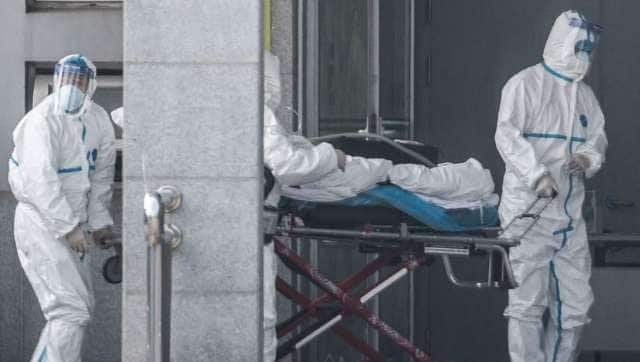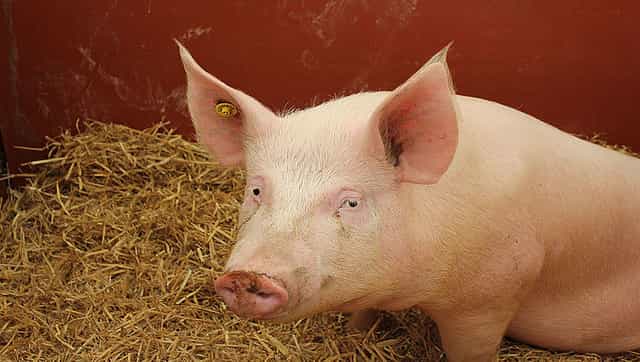In a development sure to raise more questions than answers, at least in the near term, scientists on Wednesday announced that they have restored blood flow and cell function in the bodies of pigs an hour after they died. Experts say the breakthrough could mean we need to update the definition of death itself. The discovery raises hopes for a range of future medical uses in humans, the most immediate being that it could help organs last longer, potentially saving the lives of thousands of people worldwide in need of transplants. However it could also spur debate about the ethics of such procedures – particularly after some of the ostensibly dead pigs startled the scientists by making sudden head movements during the experiment. The research comes on the heels of a US-based team in 2019 stunning the scientific community in by managing to restore cell function in the brains of pigs hours after they had been decapitated. Let’s take a closer look: For the latest research, published in the journal Nature, the team sought to expand this technique to the entire body. As per Nature, the research challenges the idea that cardiac death — which occurs when blood circulation and oxygenation stops — is irreversible. How did they do it? As per NBC News, the OrganEx research was a single study in a laboratory setting in which researchers had total control over the circumstances of the pigs’ death and treatment. They induced a heart attack in the anaesthetised pigs, which stopped blood flowing through the bodies. This deprives the body’s cells of oxygen – and without oxygen, cells in mammals die.
The pigs then sat dead for an hour.
As per Nature, researchers then connected the pigs’ bodies to a system called OrganEx that pumped a blood substitute throughout the animals’ bodies. The solution — comprising the animals’ blood and 13 compounds such as anticoagulants — slowed the decomposition of the bodies and quickly restored organ functions such as heart contraction and activity in the liver and kidney. [caption id=“attachment_10830771” align=“alignnone” width=“640”]  Representational image. ANI[/caption] However, while OrganEx helped to preserve the integrity of some brain tissue, it is important to note that researchers did not observe any coordinated brain activity that would indicate the animals had regained any consciousness or sentience, as per the report. What do experts say? “These cells were functioning hours after they should not have been. What this tells us is that the demise of cells can be halted,” Nenad Sestan, the study’s senior author and a researcher at Yale University, told journalists. Co-lead author David Andrijevic, also from Yale, told AFP the team hopes the technique, called OrganEx, “can be used to salvage organs”. Andrijevic told Sky News, “All cells do not die immediately, there is a more protracted series of events. It is a process in which you can intervene, stop, and restore some cellular function." OrganEx could also make new forms of surgery possible as it creates “more medical wiggle room in cases with no circulation to fix things,” said Anders Sandberg of Oxford University’s Future of Humanity Institute. “We made cells do something they weren’t able to do” when the animals were dead, team member Zvonimir Vrselja, a neuroscientist at Yale University in New Haven, Connecticut told Nature. “We’re not saying it’s clinically relevant, but it’s moving in the right direction.” “Under the microscope, it was difficult to tell the difference between a healthy organ and one which had been treated with OrganEx technology after death,” Vrselja told Sky News. The authors told Sky News OrganEx could have several potential applications including extending the life of organs in human patients, expanding the availability of donor organs for transplants and help treating organs or tissue damaged by ischemia during heart attacks or strokes. Nita Farahany, a neuroethicist at Duke University in Durham, North Carolina, told Nature the results of the experiments are ‘stunning.’ Farahany said that although this study is preliminary, it suggests that in time some perceived limitations of the human body might be overcome.
The technique could potentially also be used to resuscitate people.
“Death is a process. Technology has, at several critical moments in the course of the last several decades, shifted the goal posts for when that process begins and when we can say that the process of death has ended,” Parent told NBC News. “All the iterations of machines that can sustain or restart lung function and or heart function have changed our perception, our experience, of when we can say it’s worth trying to save someone’s life.” However this could increase the risk of bringing back patients to a point where they are unable to live without life support – trapped on what is called the “bridge to nowhere,” Brendan Parent, a bioethicist at the NYU Grossman School of Medicine, said in a linked comment in Nature. Could death be treatable? Humanity has pondered the question of what happens after death since time immemorial. Science tells us a lack of blood flow, oxygen and nutrients lead to a series of biochemical events that destroy the body’s cells and organs.
This new research raises all sorts of questions about the definition of death itself.
Parnia of the NYU Grossman School of Medicine said it was “a truly remarkable and incredibly significant study”. It showed that death was not black and white but rather a “biological process that remains treatable and reversible for hours after it has occurred”, he said. But researchers don’t see OrganEx being applicable to treat human beings anytime soon. [caption id=“attachment_10566961” align=“alignnone” width=“640”]  Representational image. AFP[/caption] “Before you hook this up to a person to try to undo whole body ischemic damage in a human being, you’d need to do a lot more work. Not that it couldn’t be done, but that’s going to be a long ways away,” Stephen Latham, director of the Yale Interdisciplinary Center for Bioethics told NBC. “There’s a great deal more experimentation that would be required.” Benjamin Curtis, a philosopher focused on ethics at the UK’s Nottingham Trent University, said the definition of death may need updating because it hinges on the concept of irreversibility. “This research shows that many processes that we thought were irreversible are not in fact irreversible, and so on the current medical definition of death a person may not be truly dead until hours after their bodily functions have stopped,” he told AFP. “Indeed, there may be bodies lying in morgues right now that haven’t yet ‘died’, if we take the current definition as valid.” During the experiment, pretty much all of the OrganEx pigs made powerful movements with their head and neck, said Stephen Latham, a Yale ethicist and study co-author.
“It was quite startling for the people in the room,” he told journalists.
He emphasised that while it was not known what caused the movement, at no point was any electrical activity recorded in the pigs’ brains, showing that they never regained consciousness after death. While there was a “little burst” on the EEG machine measuring brain activity at the time of the movement, Latham said that was probably caused by the shifting of the head affecting the recording. However Curtis said the movement was a “major concern” because recent neuroscience research has suggested that “conscious experience can continue even when electrical activity in the brain cannot be measured”. “So it is possible that this technique did in fact cause the subject pigs to suffer, and would cause human beings to suffer were it to be used on them,” he added, calling for more research. With inputs from agencies Read all the Latest News , Trending News , Cricket News , Bollywood News , India News and Entertainment News here. Follow us on Facebook, Twitter and Instagram.


)

)
)
)
)
)
)
)
)



